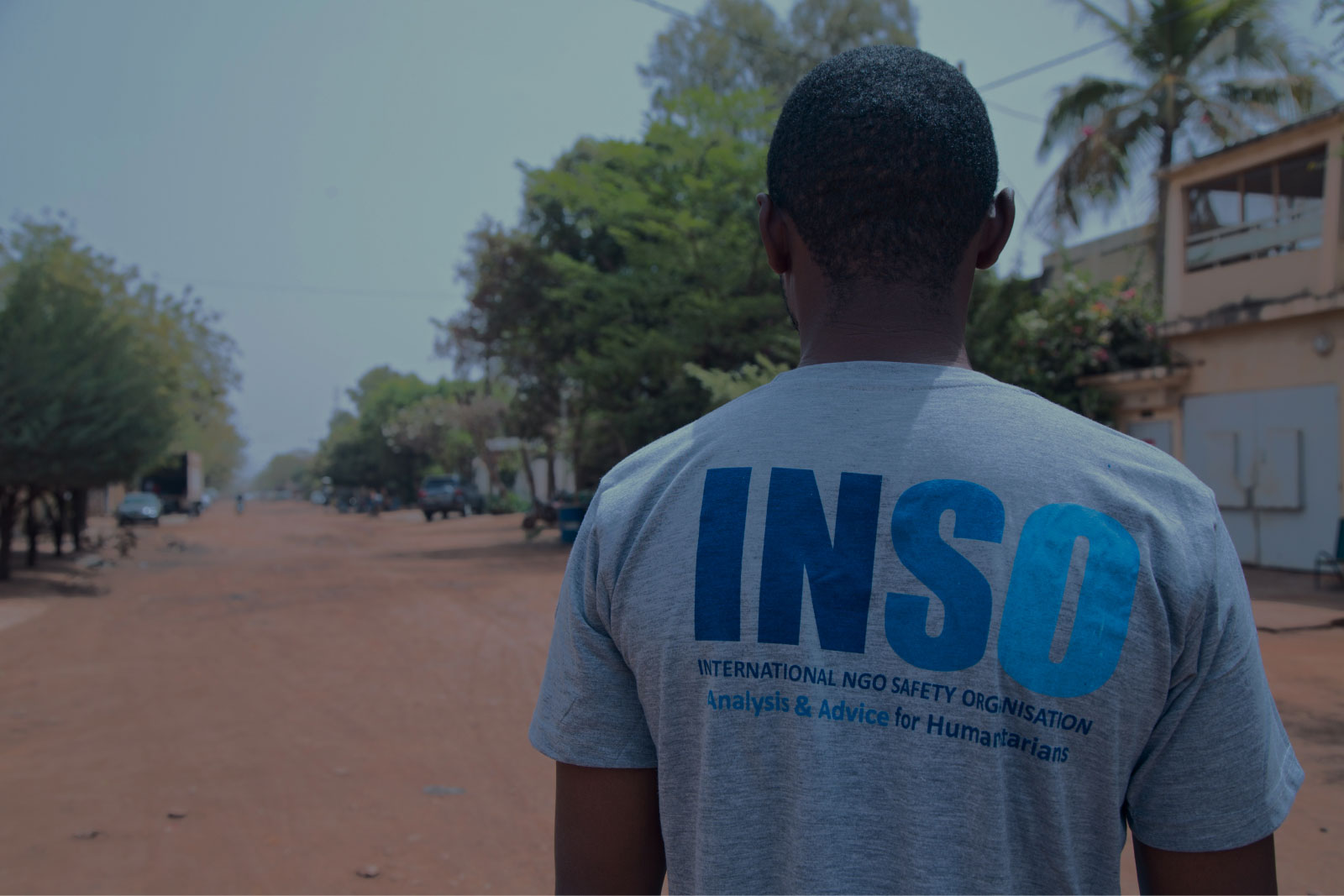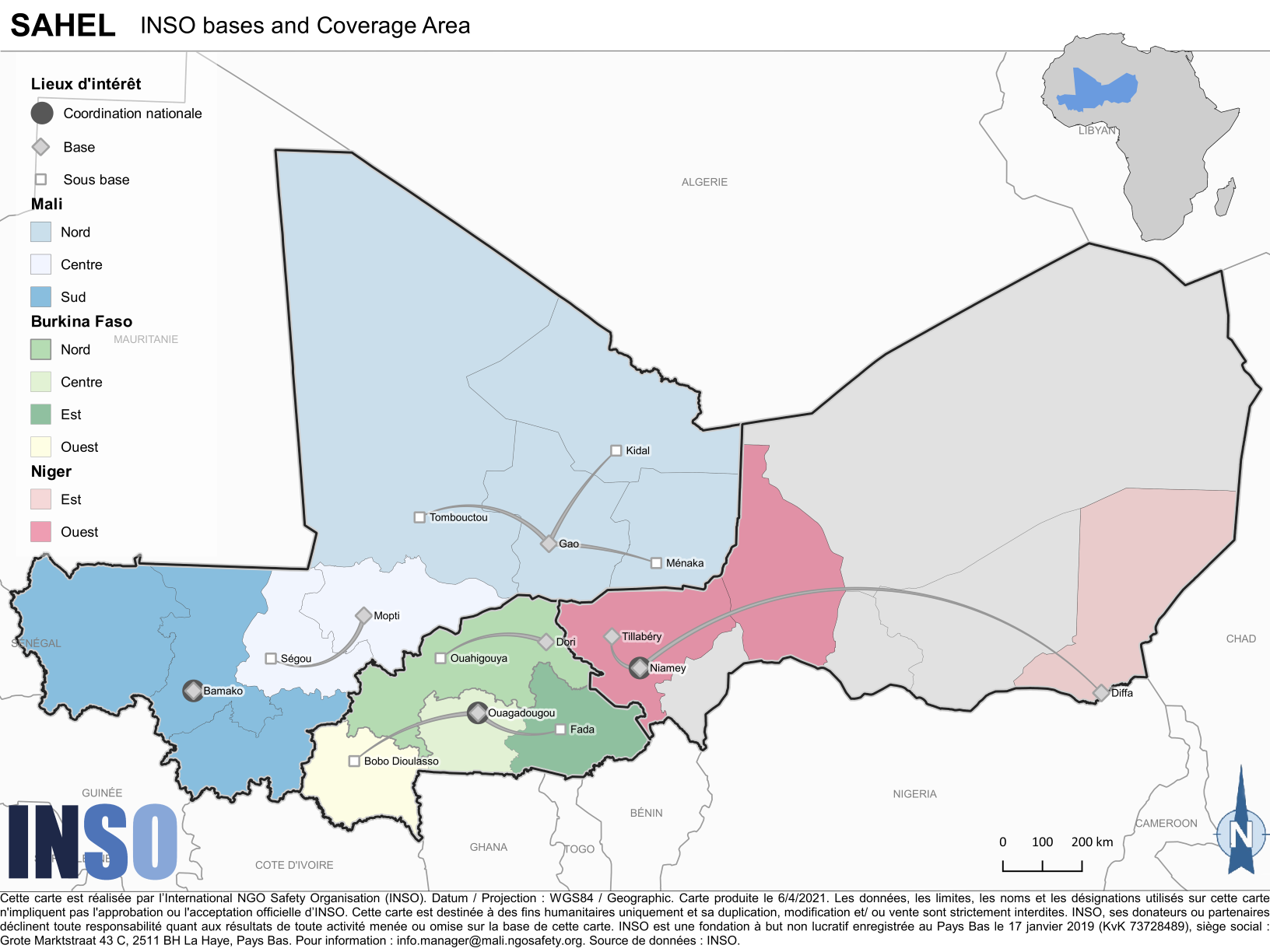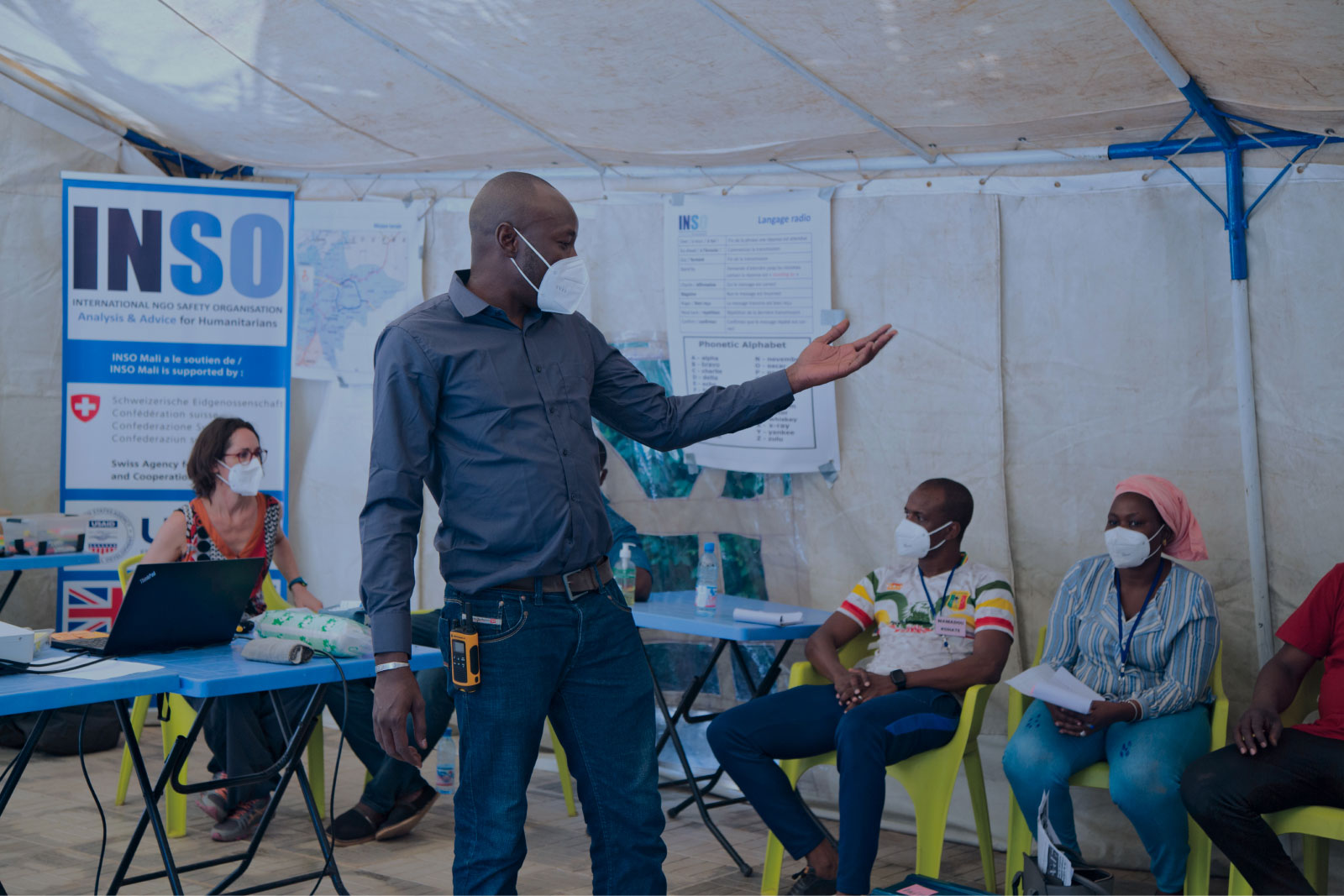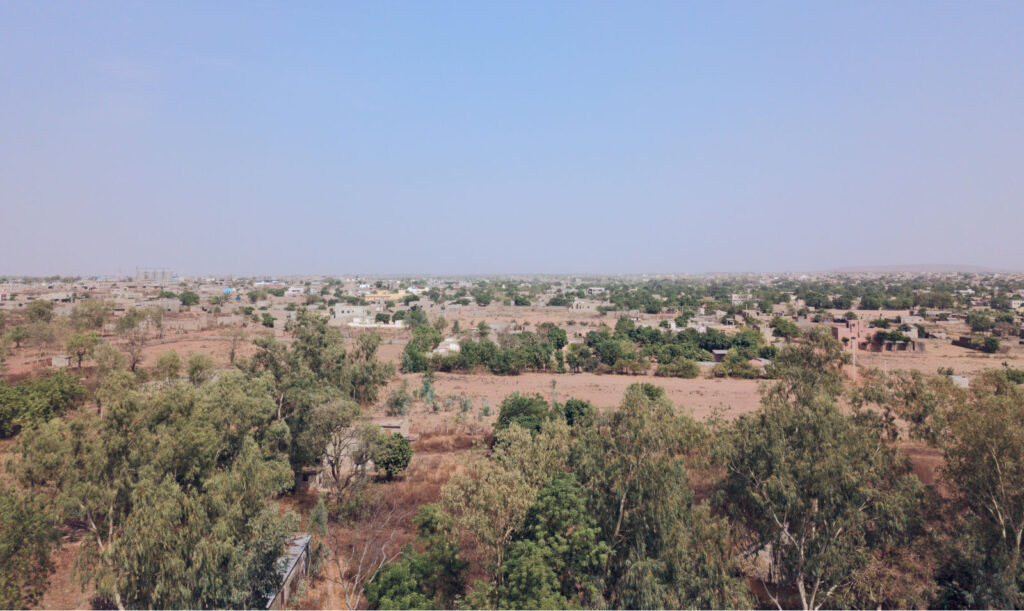In the past three years, displacement in the Sahel has grown exponentially and humanitarian needs have skyrocketed.
“Escalating conflict, alongside climate change and issues over land use have really compounded the dire situation for millions of people,” explains Eleanor Beevor, INSO’s Regional Analyst for the Sahel.
“Many of our NGO partners have now had to pivot to meet emergency needs, often in areas of the region that they haven’t worked before.”
With that changing footprint comes changing risks to staff and operations.
The number of NGO incidents recorded by INSO in 2020 exceeded the previous year in all three countries and rose a total of almost 20%. This is likely due to both increased conflict and increased presence.
“NGOs are facing new access and security issues across the three countries, many of which are mirrored across borders,” Eleanor Beevor says. “To support these growing needs, INSO is also growing. We are focused on understanding the evolving local dynamics and how they contribute to the broader regional picture.”

An INSO staff member in Bamako, Mali. Today INSO provides services to almost 400 local and international NGOs across the Sahel. Credit: A. Risemberg/INSO
Expanded Services
INSO’s safety services, including analysis, advice, coordination, and training, are delivered where they are most needed.
“This means that we are rooted in the communities we serve, and are present in 14 locations across the Central Sahel Region. This includes seven offices in Mali, five in Burkina Faso and two in Niger,” explains Tomas Muzik, INSO’s Regional Director for West Africa.
This proximity to the humanitarian community allows us to understand the realities they are facing and respond to their needs in an accurate and timely manner.
In practice this has meant that as contexts have continued to evolve, INSO has adapted its own footprint and substantially expanded its services.

In 2020, INSO Niger was fully established as an independent programme and now has two teams in Nimey and Tillabery in the Central Sahel and one in Diffa in the Lake Chad Basin.
In Mali, INSO has grown its scope of services at the request of the NGO community, including adding a context specific Hostile Environment Individual Safety Training (HEIST), Hostile Environment First-Aid Training (HEFAT) and opening a new office in Segou.
In Burkina Faso, INSO has expanded geographically to Ouahigouya and Bobo Dioulasso, and increased the number of trainings delivered. This year, INSO will further expand the number of trainings offered to include both HEIST and HEFAT courses.
To improve regional and cross-border analysis, INSO’s teams are now also supported by a dedicated Sahel Regional Analyst.

An INSO staff member facilitates a HEIST training in Bamako, Mali. INSO’s safety services, including analysis, advice, coordination, and training, are delivered where they are most needed. Credit: A. Risemberg
Regional Dynamics
In the months and years to come, regional dynamics will continue to complicate the work of NGOs and the lives of their teams.
“The intertwined nature of the situations in Mali, Burkina Faso and Niger, and the relationship of this crisis to the one evolving in the Lake Chad Basin means that INSO’s region approach is vital to understanding the context and to providing comprehensive support to NGO partners,” says Eleanor Beevor.
“We provide NGOs with that regional perspective and support their coordination across borders. NGOs are facing many access issues that are the same in all three contexts, but often at different times.”
“It’s vital we use the learning from one context and apply it to the others to get ahead and preempt issues. Many NGOs don’t have the capacity to look at these cross-border issues and so this is the core of the support I provide.”
Today INSO provides services to almost 400 local and international NGOs across the region.
“As dynamics change further, we will continue to adapt and to support NGOs where they most need it,” concludes Tomas Muzik.
INSO platforms in Central Sahel are funded by USAID-BHA, DG ECHO, Swiss Development Cooperation, Luxembourg Ministry of Foreign Affairs, Swedish Ministry of Foreign Affairs (Sida), and the Foreign, Commonwealth and Development Office of the UK.
If you want to sign up for services, please register here.

